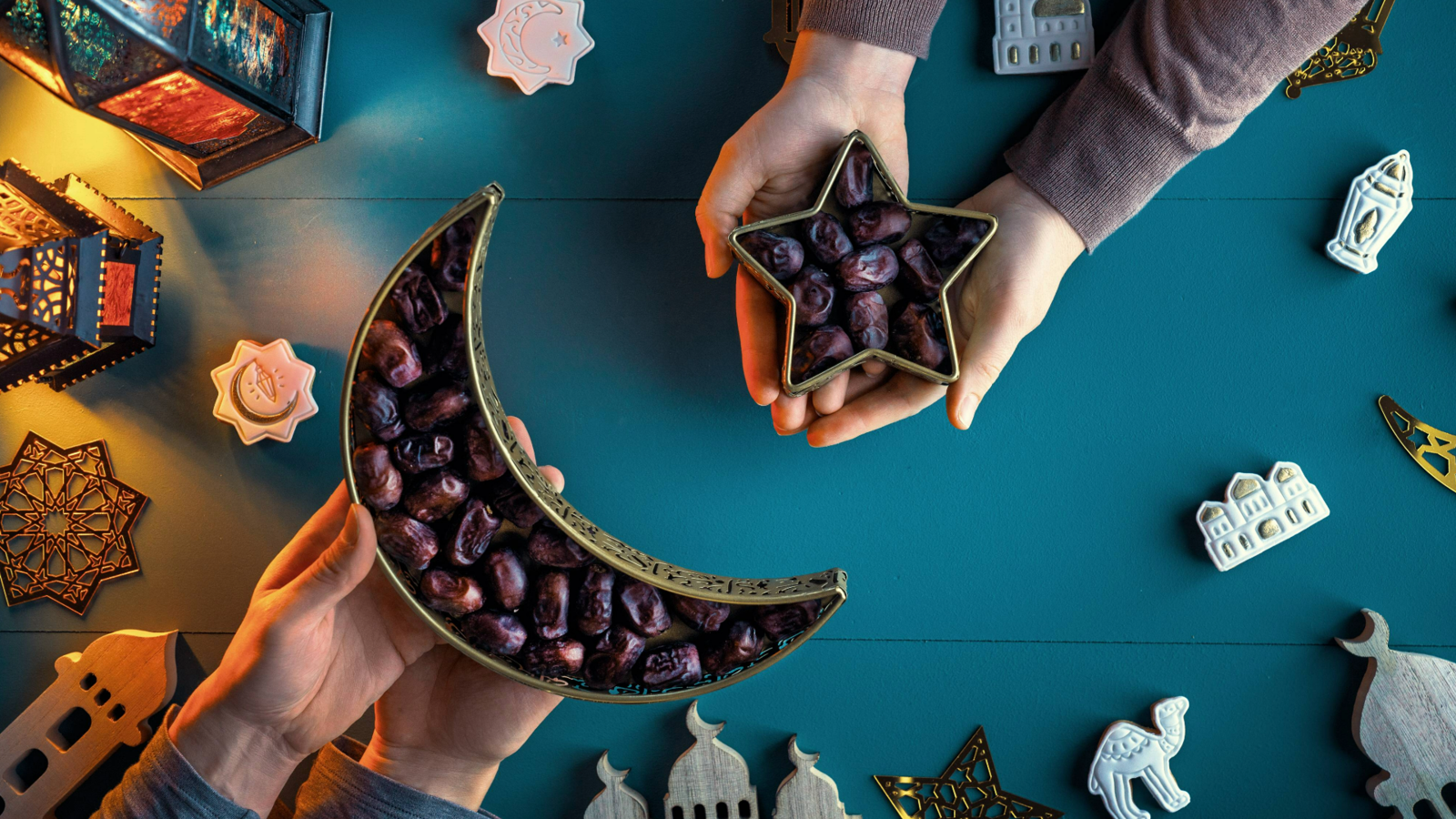Ramadan: A time for reflection, community, and joy

For many, Ramadan may conjure images of fasting from dawn to dusk, but the holy month is about so much more for those who observe it. It’s a time of spiritual renewal, deep connection, and vibrant community traditions. To get a closer, more personal perspective, we spoke with Amna Giurgiu, Recruitment and Equalities Manager, who shared her experiences of observing Ramadan while balancing work, family, and faith.
“Fasting is one of the Five Pillars of Islam,” she explained. “It’s a compulsory act of worship for healthy adults and involves fasting from sunrise to sunset—no food, water, nothing. But it’s not just about abstaining from eating. It’s an opportunity to reset, spiritually and mentally.”
Spiritual growth and connection
Beyond fasting, Ramadan is a time of increased prayer, charity, and self-discipline. “It’s a chance to really focus on faith and character development,” Amna said. “We believe that the devil is locked away during this time, so it’s an opportunity to strengthen good habits and seek forgiveness.”
In many ways, Ramadan can feel like a fresh start, much like New Year’s resolutions. “Just as people make resolutions to go to the gym, eat healthier, or break bad habits in January, Ramadan offers that same opportunity for self-improvement, but with a spiritual focus,” Amna noted. “It’s a time to reflect on our behaviours and try to carry the positive changes forward beyond the month.”
The nights of Ramadan are often as special as the days. Many Muslims attend extra evening prayers at the mosque, known as Taraweeh, which can last up to an hour. “This year, my seven-year-old son might join me for the first time. It’s a big moment for him—learning to stand in long prayers with the community.”
Community and traditions
Though fasting can be challenging, many cherish the sense of togetherness during Ramadan the most. “There’s something really powerful about being in a mosque filled with people, all praying together. It’s a sense of unity, like a spiritual retreat in everyday life.”
Food, of course, plays a significant role in Ramadan and for Amna and her family. “In my South Asian household, breaking the fast—called iftar—means enjoying a spread of delicious dishes. It’s a time to come together as a family. We might have samosas, fruit chaat, and other treats that aren’t necessarily the healthiest. Still, it’s part of the joy of Ramadan.”
Balancing work and fasting
Observing Ramadan while working requires adjustments. “I plan ahead—I start cutting back on caffeine before Ramadan begins to avoid withdrawal headaches,” Amna explained. “I also try to schedule meetings strategically, especially when energy levels might dip in the afternoon.”
“Not every colleague in our organisation has the flexibility to do this so considering Muslim colleagues when scheduling shifts, assignments and breaks for them is really important.”
Fortunately, many workplaces are becoming more understanding of employees who fast. “It’s nice when colleagues are aware and supportive, even if it’s just acknowledging that someone is fasting. Little things, like scheduling meetings thoughtfully or offering flexibility, go a long way.”
How colleagues can show support
For those unfamiliar with Ramadan, the best approach is curiosity and kindness. “If you have a Muslim colleague, don’t be afraid to ask respectful questions. It’s like asking someone about their New Year’s resolutions—it’s something meaningful to them.”
Resources for learning about Ramadan are abundant, from short online videos to in-depth articles. Many great resources online provide an accessible introduction to Ramadan, such as BBC Bitesize and various YouTube channels that break it down simply. If you’re interested, even visiting a local mosque’s website can offer insights into the customs and significance of the month.
Ramadan isn’t just observed by colleagues — our customers, who use our venues and services, may also be observing. “It’s important to be mindful that members of the public may be fasting too. For instance, if someone visiting a library or museum seems a bit more tired or slow-moving, they may simply be conserving their energy,” Amna pointed out. “Some might also be looking for a quiet space to pray or take a short break.”
We can show support to our customers by considering practical adjustments. “If venues have designated quiet spaces, making them accessible for prayer can be really helpful. Even just raising awareness among staff about Ramadan means we can be more understanding and accommodating of different needs.”
A time to reset and celebrate
As Ramadan ends, it culminates in a grand celebration known as Eid al-Fitr, a day of feasting, gratitude, and giving. “For some, it means big family gatherings. For others, especially those without nearby family, it may mean seeking out community events to mark the occasion.”
Reflecting on what Ramadan means, Amna summed it beautifully: “It’s the best time of the year. It’s about feeling closer to God, closer to family, and part of a much bigger, global community.”
So, as Ramadan approaches, let’s embrace the spirit of understanding and support. Whether giving a fasting colleague a little extra patience during a long afternoon meeting or simply wishing them “Ramadan Mubarak” which means ‘Blessed Ramadan’ or ‘Ramadan Kareem’ which means ‘Generous Ramadan’ or simply ‘Happy Ramadan’, small gestures can make a big difference in fostering inclusivity in the workplace.
